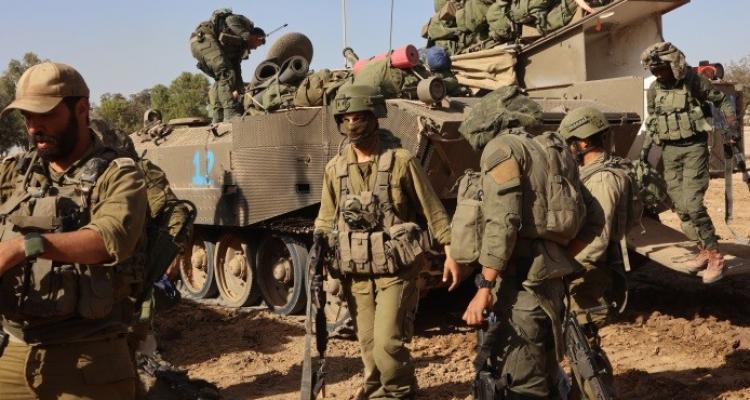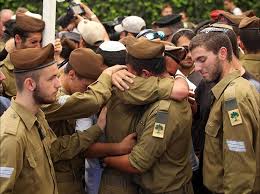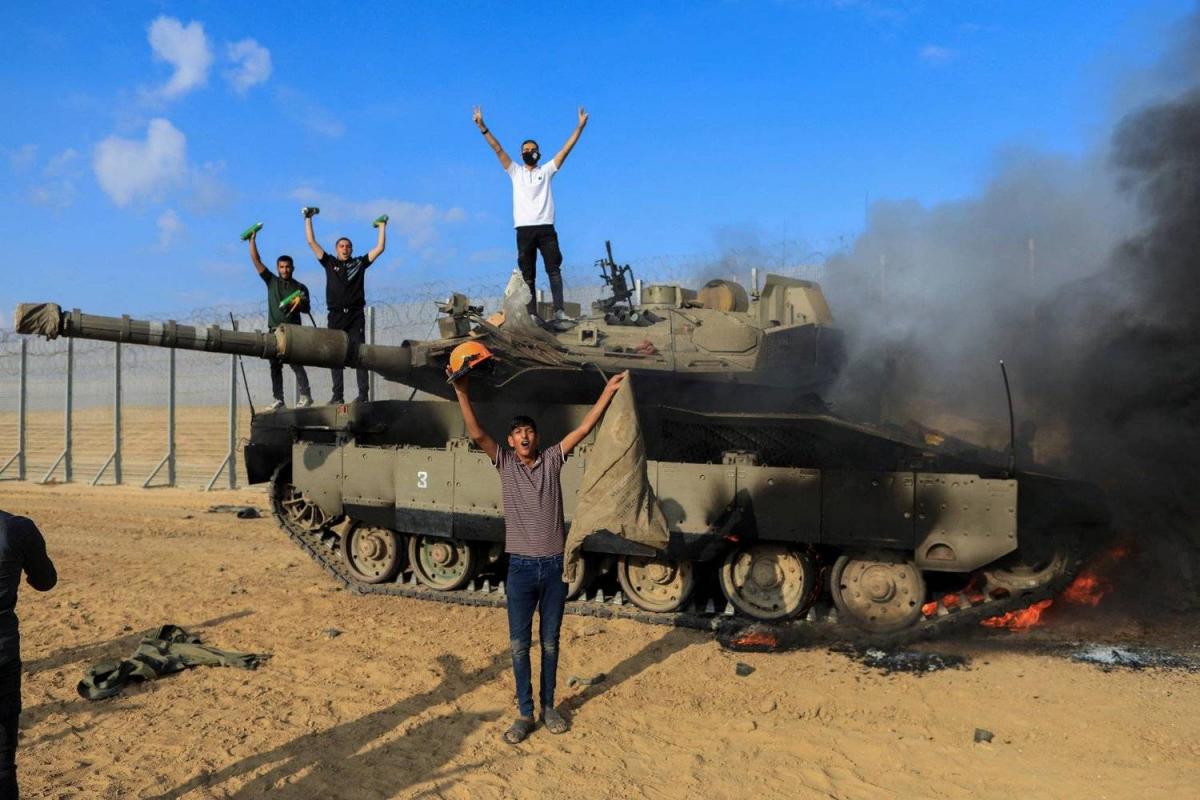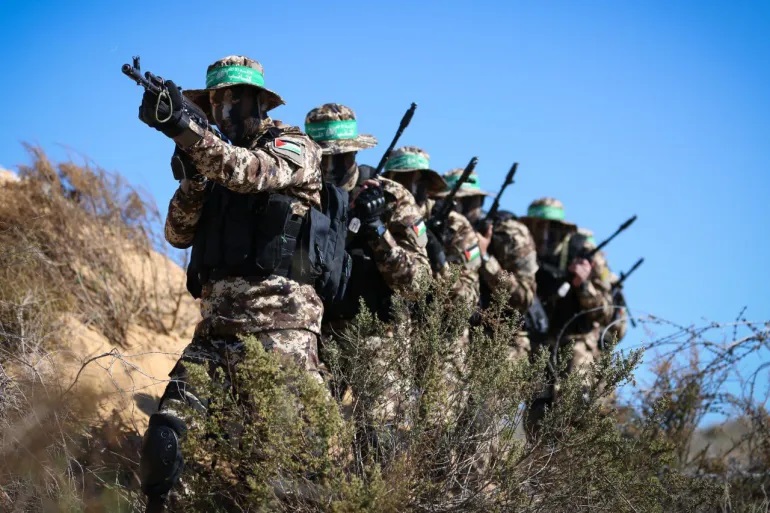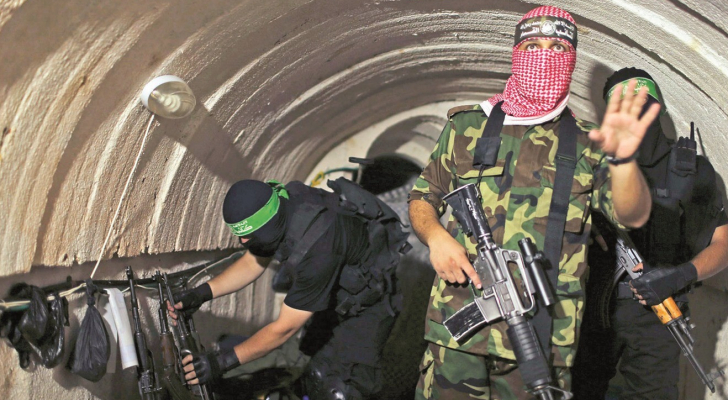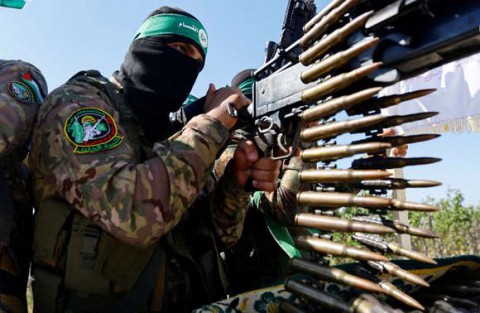
SANA'A June 24. 2024 (Saba) - After over nine months of intense conflict in the Gaza Strip, the Palestinian resistance has emerged victorious, compelling an immediate withdrawal by Israeli forces. Evidence on the ground indicates that the resistance's innovative military tactics have set a new standard, likely to be studied in military academies worldwide alongside their renowned guerrilla warfare strategies.
Led by the Islamic Resistance Movement, Hamas, the Palestinian resistance demonstrated that the true power of weaponry lies not in its size or destructive capability, but in its strategic use, and the will and determination of its operators. Their resilience against an advanced, Western-supported military force has been remarkable. This victory resonates deeply with the regional populace, who yearn for liberation from oppressive regimes.
It represents a deserved reward for the Palestinians' steadfastness, patience, and sacrifices over decades of struggle for their legitimate and historical rights. In a related commentary, Zionist writer Gideon Levy criticized reports from Israeli media claiming the elimination of Hamas' Qassam Brigades. Writing for Haaretz, Levy suggested that this announcement serves as a pretext for redeploying Israeli forces from Gaza to the northern border in preparation for another campaign in Lebanon.
In a recent commentary, the Zionist writer emphasized that each passing day for the occupying forces in Gaza only leads to deeper entanglement. He remarked, "Even if you annihilate all Hamas battalions in Rafah, bringing us to the brink of total victory, you must conceal the reality from both inside and outside 'Israel' and what obstructs declaring victory, because the priority is to withdraw from Gaza."
He argued that 'Israel' neither achieved nor will achieve any victory in Gaza and should have pretended to climb down from the blood-stained tree it never should have ascended.
He continued mockingly, "It is better for 'Israel' to feign victory and acknowledge that Hamas has triumphed diplomatically, socially, morally, and economically." Levy noted that Israel's position at the war's end was far worse than at its beginning, describing the conflict as "unnecessary."
He stated that wars are judged by their outcomes, and the Gaza war's results were predictable: senseless involvement, the wanton shedding of Palestinian blood, and turning Israel into a pariah state, "all for nothing." Levy concluded his piece by urging, "It is time to leave Gaza through an agreement with Hamas that ends the war and secures the release of captured soldiers and thousands of Palestinian prisoners. An agreement tomorrow is better than the day after tomorrow. We, as 'Israelis,' must abandon our pride, endure the humiliation of Hamas remaining in power, and act swiftly to achieve this.
In turn, retired general of the Zionist enemy army, Yitzhak Brick, said in an article in the Zionist newspaper "Maariv" on Monday: "Hamas" still controls 80 percent of the tunnels under the Gaza Strip, and "Tel Aviv" is far from defeating the movement "as far as the East is from the West." He added: "Every day that passes in the war, which has lost its goal, leads to the erosion of our capabilities and crushes our country." He added: "The army is collapsing, the economy of "Israel" is collapsing, we are losing our connections with the world, and our national capabilities are severely damaged."
He pointed out that "after the army forces left the territories it occupied, Hamas returned through the tunnels, 80 percent of which are still in its hands, to these territories." He pointed out that this happened "in the cities of Gaza and Jabalia, the Shuja'iyya neighborhood east of Gaza, al- Zeitoun neighborhood south of Gaza, and the city of Khan Yunis (south)", indicating that Hamas fighters "leave the tunnel openings for a brief moment, and fire missiles at the occupation army's tanks and armored personnel carriers, then return from the openings to the tunnels".
He stressed that "Israel" is as far from defeating Hamas as the East is from the West. For its part, the American magazine (Foreign Affairs) published an analysis by Robert Pape, a professor of political science and director of the Chicago Project on Security and Threats at the University of Chicago, under the title (Hamas is Winning... Why is "Israel's" Failed Strategy Making Its Enemy Stronger?), in which he confirmed that the Zionist entity, after nine months of its air and ground war in Gaza, has not defeated the Hamas movement, nor is it on the verge of defeating it. On the contrary, Hamas has become stronger than it was before the "Al-Aqsa Flood" attack.
The American researcher stressed that the main flaw in the Zionist entity's strategy is not the failure of tactics or the imposition of political and moral restrictions on military power, but rather the comprehensive and blatant failure to understand the sources of Hamas's strength.
He considered that the occupying entity failed, to its great detriment, to realize that the massacre and destruction it unleashed in Gaza only increased the strength of the Hamas movement. He stressed that Hamas can still strike "Israel", and more than 80 percent of its underground tunnel network is still usable for planning and storing weapons, avoiding Zionist surveillance, and for seizure and attacks, and most of Hamas's senior leadership in Gaza is still intact.
He stressed that the strength of a movement like Hamas does not come from the typical material factors that analysts use to judge the strength of countries, such as the size of the economy, the technological development of armies, the amount of external support it enjoys, and the strength of educational systems, but rather the most important source for these movements is the ability to recruit, especially its ability to attract new generations of fighters and elements who carry out deadly campaigns and are willing to die for the cause.
American researcher concluded by saying that after nine months of grueling war, it's time to acknowledge the stark reality: a military solution alone cannot defeat Hamas. Hamas is more than just the current number of fighters; it is also more than a mere evocative idea. He emphasized that Hamas is a political and social movement that is not on the verge of defeat and will not disappear anytime soon.
Its cause has gained more popularity, and its appeal is stronger than it was before October 7th. Its fighters will continue to increase in number and participate in combat, thereby escalating the threat to the occupying Zionist entity.
Morally, the issue of the Zionist prisoners has unveiled significant ethical and humanitarian differences. The Palestinian resistance has demonstrated good treatment of those they capture, in contrast to the crimes committed by the Zionist enemy forces against Palestinian detainees. The comparison in treatment between the two sides began early, when both parties agreed to a temporary truce that included a prisoner exchange.
Zionist prisoners emerged from the Gaza Strip exchanging greetings, smiles, and farewells with the resistance fighters. Some of these scenes went viral on social media, capturing moments of security and even sorrowful farewells, such as when prisoner Maya Regev thanked a Qassam Brigade fighter with a "thank you," a moment that quickly gained traction online.
In contrast, Palestinian prisoners faced various forms of abuse both inside and outside the enemy's prisons. The case of the freed Palestinian prisoner Farouk Al-Khatib, who died shortly after his release due to cancer after being denied treatment for a long period, paints a grim picture of the Zionists' mistreatment of prisoners. Similarly, prisoner Walid Daqa died inside the detention center for the same reason.
H.H
Led by the Islamic Resistance Movement, Hamas, the Palestinian resistance demonstrated that the true power of weaponry lies not in its size or destructive capability, but in its strategic use, and the will and determination of its operators. Their resilience against an advanced, Western-supported military force has been remarkable. This victory resonates deeply with the regional populace, who yearn for liberation from oppressive regimes.
It represents a deserved reward for the Palestinians' steadfastness, patience, and sacrifices over decades of struggle for their legitimate and historical rights. In a related commentary, Zionist writer Gideon Levy criticized reports from Israeli media claiming the elimination of Hamas' Qassam Brigades. Writing for Haaretz, Levy suggested that this announcement serves as a pretext for redeploying Israeli forces from Gaza to the northern border in preparation for another campaign in Lebanon.
In a recent commentary, the Zionist writer emphasized that each passing day for the occupying forces in Gaza only leads to deeper entanglement. He remarked, "Even if you annihilate all Hamas battalions in Rafah, bringing us to the brink of total victory, you must conceal the reality from both inside and outside 'Israel' and what obstructs declaring victory, because the priority is to withdraw from Gaza."
He argued that 'Israel' neither achieved nor will achieve any victory in Gaza and should have pretended to climb down from the blood-stained tree it never should have ascended.
He continued mockingly, "It is better for 'Israel' to feign victory and acknowledge that Hamas has triumphed diplomatically, socially, morally, and economically." Levy noted that Israel's position at the war's end was far worse than at its beginning, describing the conflict as "unnecessary."
He stated that wars are judged by their outcomes, and the Gaza war's results were predictable: senseless involvement, the wanton shedding of Palestinian blood, and turning Israel into a pariah state, "all for nothing." Levy concluded his piece by urging, "It is time to leave Gaza through an agreement with Hamas that ends the war and secures the release of captured soldiers and thousands of Palestinian prisoners. An agreement tomorrow is better than the day after tomorrow. We, as 'Israelis,' must abandon our pride, endure the humiliation of Hamas remaining in power, and act swiftly to achieve this.
In turn, retired general of the Zionist enemy army, Yitzhak Brick, said in an article in the Zionist newspaper "Maariv" on Monday: "Hamas" still controls 80 percent of the tunnels under the Gaza Strip, and "Tel Aviv" is far from defeating the movement "as far as the East is from the West." He added: "Every day that passes in the war, which has lost its goal, leads to the erosion of our capabilities and crushes our country." He added: "The army is collapsing, the economy of "Israel" is collapsing, we are losing our connections with the world, and our national capabilities are severely damaged."
He pointed out that "after the army forces left the territories it occupied, Hamas returned through the tunnels, 80 percent of which are still in its hands, to these territories." He pointed out that this happened "in the cities of Gaza and Jabalia, the Shuja'iyya neighborhood east of Gaza, al- Zeitoun neighborhood south of Gaza, and the city of Khan Yunis (south)", indicating that Hamas fighters "leave the tunnel openings for a brief moment, and fire missiles at the occupation army's tanks and armored personnel carriers, then return from the openings to the tunnels".
He stressed that "Israel" is as far from defeating Hamas as the East is from the West. For its part, the American magazine (Foreign Affairs) published an analysis by Robert Pape, a professor of political science and director of the Chicago Project on Security and Threats at the University of Chicago, under the title (Hamas is Winning... Why is "Israel's" Failed Strategy Making Its Enemy Stronger?), in which he confirmed that the Zionist entity, after nine months of its air and ground war in Gaza, has not defeated the Hamas movement, nor is it on the verge of defeating it. On the contrary, Hamas has become stronger than it was before the "Al-Aqsa Flood" attack.
The American researcher stressed that the main flaw in the Zionist entity's strategy is not the failure of tactics or the imposition of political and moral restrictions on military power, but rather the comprehensive and blatant failure to understand the sources of Hamas's strength.
He considered that the occupying entity failed, to its great detriment, to realize that the massacre and destruction it unleashed in Gaza only increased the strength of the Hamas movement. He stressed that Hamas can still strike "Israel", and more than 80 percent of its underground tunnel network is still usable for planning and storing weapons, avoiding Zionist surveillance, and for seizure and attacks, and most of Hamas's senior leadership in Gaza is still intact.
He stressed that the strength of a movement like Hamas does not come from the typical material factors that analysts use to judge the strength of countries, such as the size of the economy, the technological development of armies, the amount of external support it enjoys, and the strength of educational systems, but rather the most important source for these movements is the ability to recruit, especially its ability to attract new generations of fighters and elements who carry out deadly campaigns and are willing to die for the cause.
American researcher concluded by saying that after nine months of grueling war, it's time to acknowledge the stark reality: a military solution alone cannot defeat Hamas. Hamas is more than just the current number of fighters; it is also more than a mere evocative idea. He emphasized that Hamas is a political and social movement that is not on the verge of defeat and will not disappear anytime soon.
Its cause has gained more popularity, and its appeal is stronger than it was before October 7th. Its fighters will continue to increase in number and participate in combat, thereby escalating the threat to the occupying Zionist entity.
Morally, the issue of the Zionist prisoners has unveiled significant ethical and humanitarian differences. The Palestinian resistance has demonstrated good treatment of those they capture, in contrast to the crimes committed by the Zionist enemy forces against Palestinian detainees. The comparison in treatment between the two sides began early, when both parties agreed to a temporary truce that included a prisoner exchange.
Zionist prisoners emerged from the Gaza Strip exchanging greetings, smiles, and farewells with the resistance fighters. Some of these scenes went viral on social media, capturing moments of security and even sorrowful farewells, such as when prisoner Maya Regev thanked a Qassam Brigade fighter with a "thank you," a moment that quickly gained traction online.
In contrast, Palestinian prisoners faced various forms of abuse both inside and outside the enemy's prisons. The case of the freed Palestinian prisoner Farouk Al-Khatib, who died shortly after his release due to cancer after being denied treatment for a long period, paints a grim picture of the Zionists' mistreatment of prisoners. Similarly, prisoner Walid Daqa died inside the detention center for the same reason.
H.H
resource : Saba
